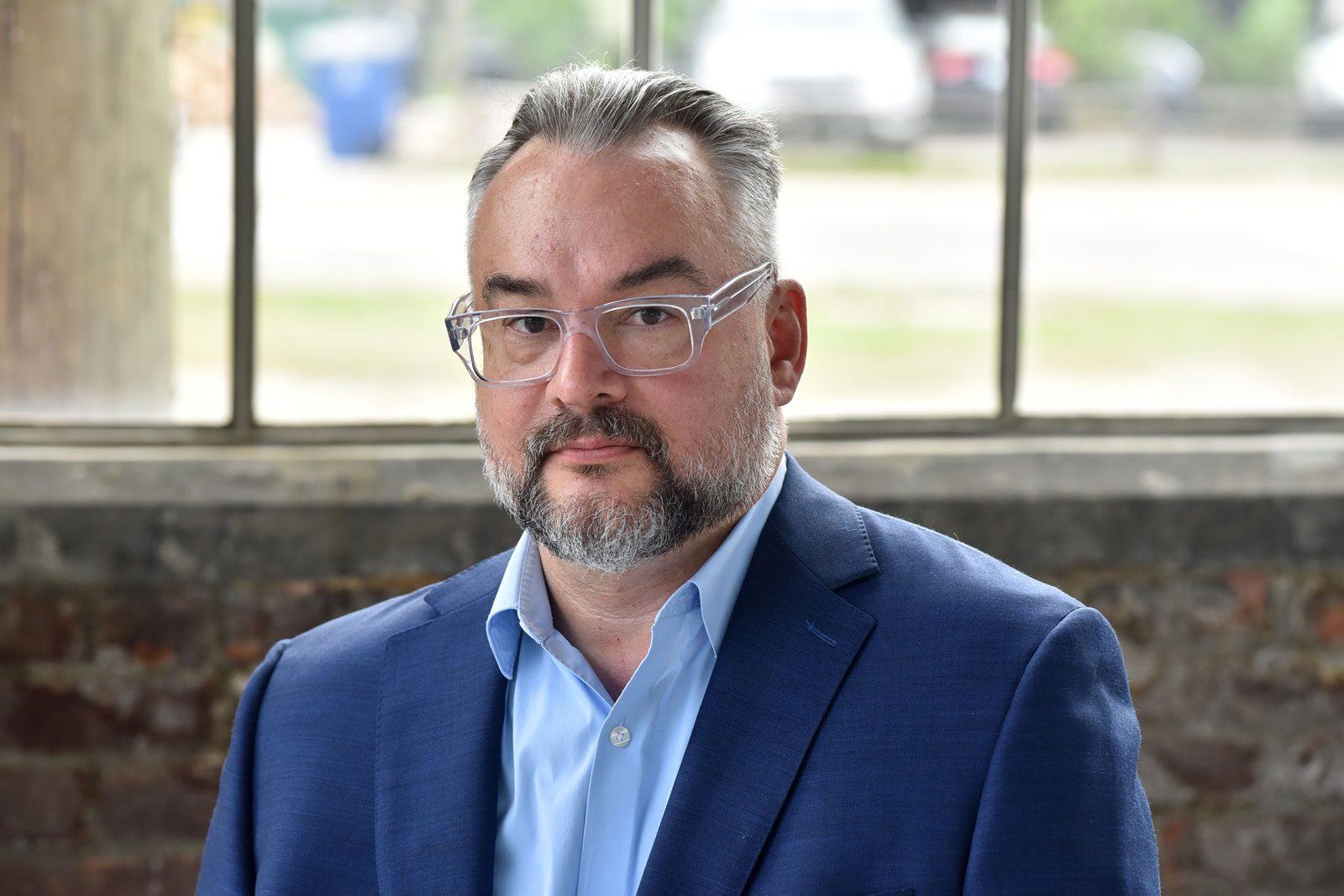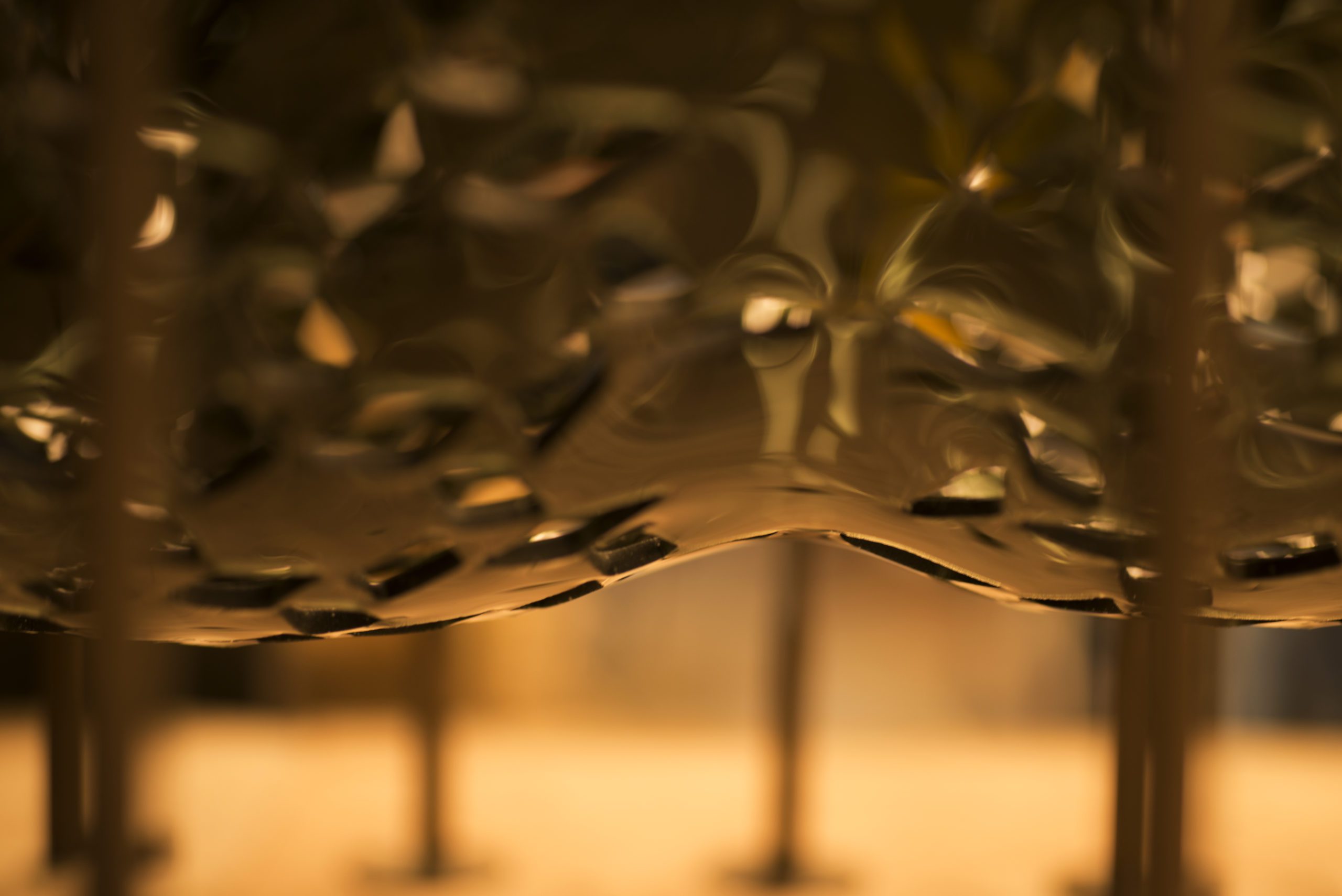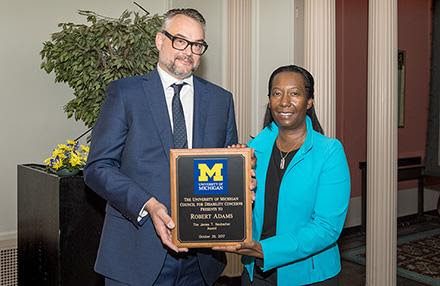Robert Adams is an associate professor of architecture at the University of Michigan’s Taubman College of Architecture and Urban Planning. He also teaches in U-M’s Stamps School of Art and Design and chairs U-M’s Initiative on Disability Studies. His current design interests focus on the intersection of architecture, civic infrastructure, and disability culture within a bio-psycho-socio-techo conceptual model where bodies, wearable technologies, and augmented environments coalesce. The work is aimed at sharpening architectural strategies to draw out and reconsider the efficacy of disability through advanced geometry, immersive perceptual configurations, and responsive networks. Adams’s research on design and disability culture has been published internationally, including “Chromosapiens: Reconsidering Architecture and Infrastructure within Disability Culture” which appeared in AT: Architecture Technique [China]; “Making a Scene: A Vivid Genealogy of the Asclepius Machine,” in Scapegoat: Architecture, Landscape, Political Economy: 04 Currency; and “We Are Chromo sapiens: Cánjí rén > Cánjí Cheng Shì > Canji Jiànzhú,” a book chapter in New Social Imperatives in China: Architecture & The City (Actar, 2017). Adams assigned the term Chromo sapiens to describe a post-human condition in the Anthropocene that dissolves the binary structure of the terms abled and disabled and offers a more suggestive description against the homogenizing and sanitized term universal design.
Adams’s design work has been exhibited in numerous solo and group shows, including “Ruralopolitan Maneuvers: Beijing’s Urban and Rural Villages,” with his Taubman College collaborators Robert Mangurian and Mary-Ann Ray, at China In Flux: Mapping The Middle Zone [Shanghai]; “The Asclepius Machine” at the University of California, Berkeley; and “Reyner Banham Loves Beijing” at the Third Architectural Biennial Beijing. His design project, “The Asclepius Machine: Genetic Diversity and Extreme Urban Euphoria,” a complex wheelchair-accessible ramp, received an honorable mention in the Seoul International Design Competition in 2010.
In 2005, Adams co-founded B.A.S.E.beijing with Mangurian and Ray. His recent efforts at B.A.S.E. include directing and producing a documentary film, Disability and Dragons: Health Infrastructure and Architecture in Urban-Rural China (2017) and an interdisciplinary research project, “Teledermic Health Architecture,” a wearable technology that measures key biometric parameters, delivers pharmaceuticals, and incorporates aspects of traditional Chinese medicine.
Adams received a Master of Architecture with distinction from Southern California Institute of Architecture in Los Angeles and a Bachelor of Fine Arts from Saint John’s University.




